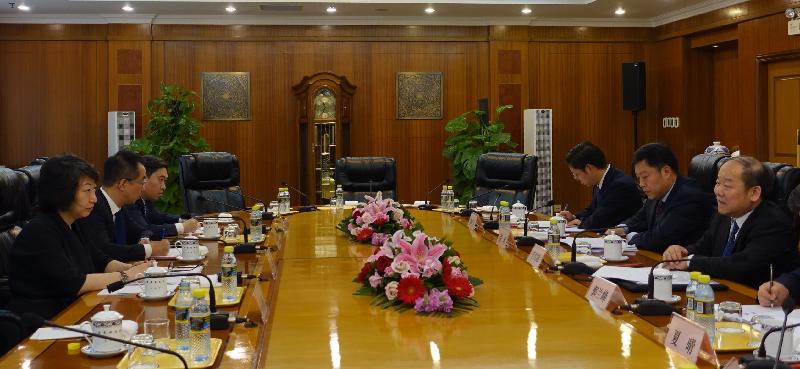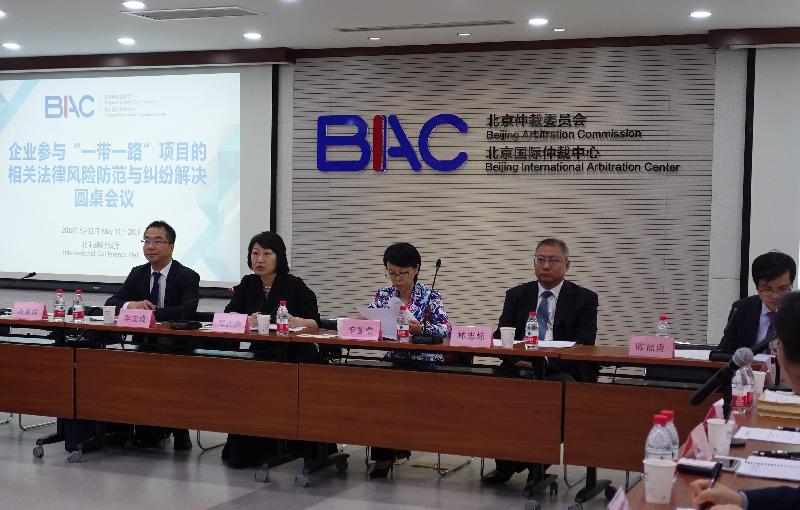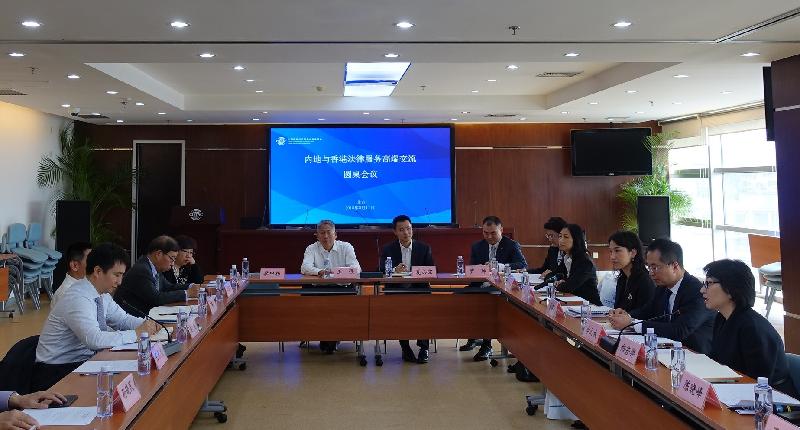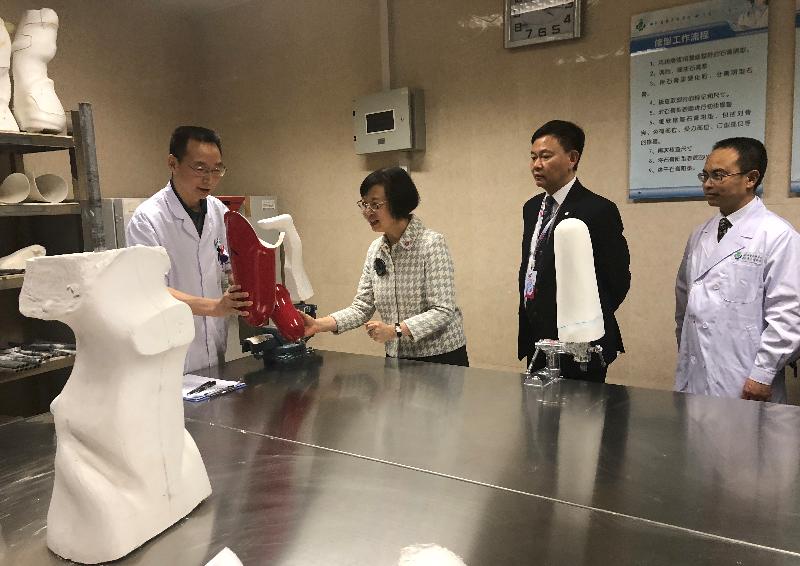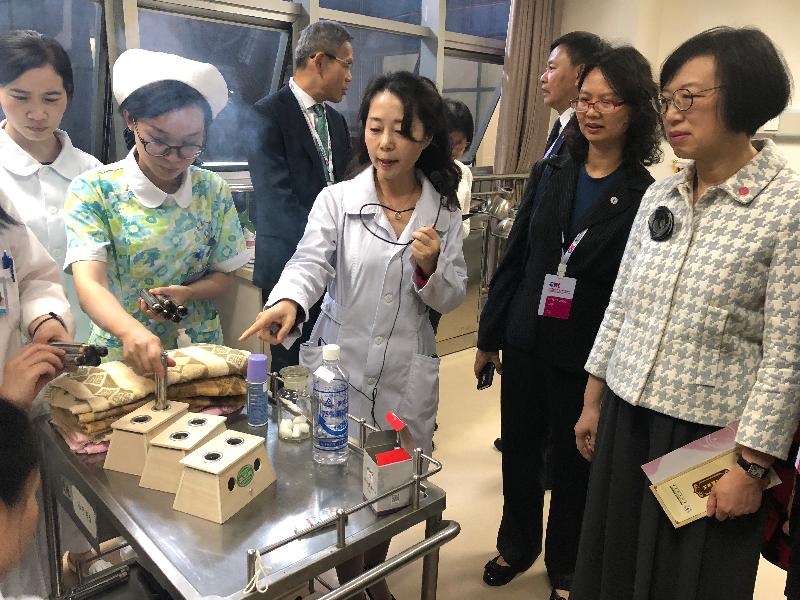SJ attends dispute resolution round tables meetings in Beijing (with photos)
The Secretary for Justice, Ms Teresa Cheng, SC, continued her visit in Beijing today (May 11).In the morning, Ms Cheng met with Assistant Minister of Commerce, Mr Li Chenggang. They discussed ways to build a communication platform for legal and dispute resolution professionals in Hong Kong to participate in Belt and Road Initiative in a more concrete way.
She then met with Vice Chairman of the National Development and Reform Commission Mr Ning Jizhe, on the development opportunities in the Mainland for Hong Kong legal and dispute resolution professionals under the Belt and Road Initiative and the Bay Area development plan.
In the afternoon, Ms Cheng joined the Hong Kong legal and dispute resolution practitioners to attend two roundtable meetings and exchanged views with representatives of the arbitration and business sectors in the Mainland. The first one was held by Beijing Arbitration Commission with focus on the participation of enterprises in the Belt and Road projects and the related legal risk prevention and dispute resolution. They then joined the second meeting organised by the China International Economic and Trade Arbitration Commission to discuss issues including pragmatic co-operation and exchanges between enterprises, legal and arbitration sectors in the Mainland and Hong Kong legal professionals, as well as ways to link Hong Kong’s legal advantages and Mainland enterprises' needs when seizing opportunities brought by the Belt and Road Initiative.
Ms Cheng will return to Hong Kong tomorrow (May 12) afternoon.

